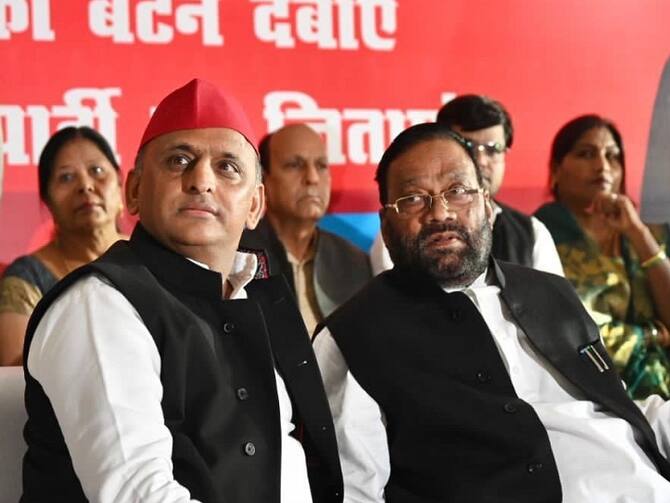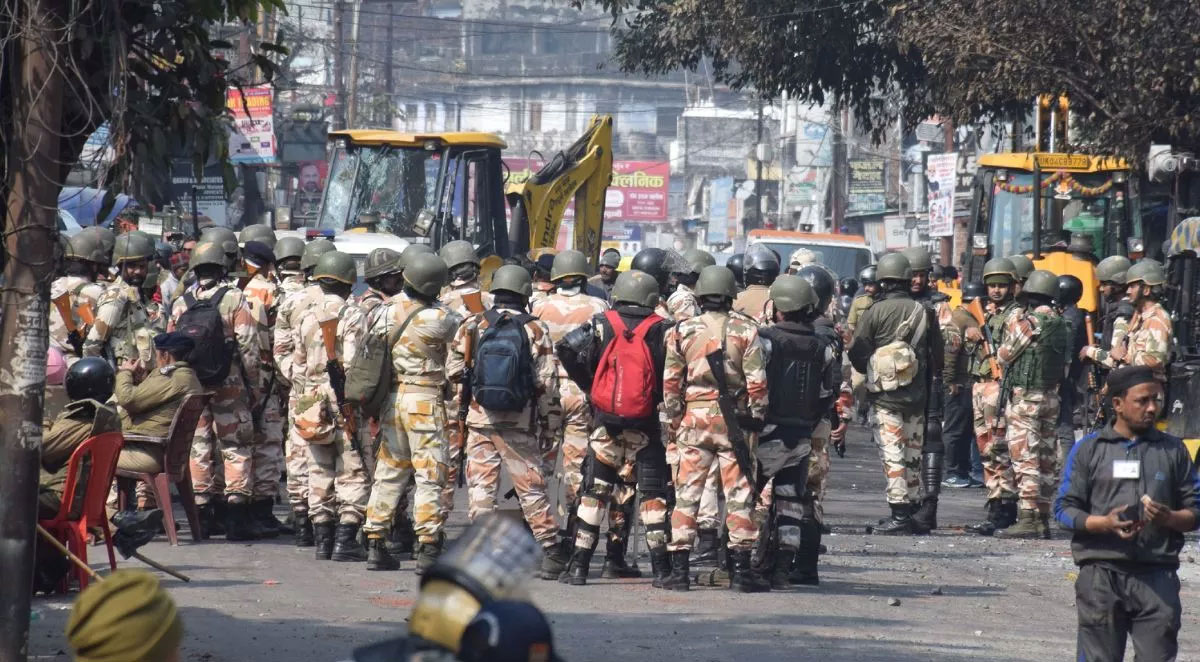How do you view the pre-Independence Dalit movement?
The pre-Independence movement should be divided into two phases. There was Mahatma Gandhi’s movement, which was the movement for Swaraj. And there was the spark that Mahatma Phule ignited, that Shahuji Maharaj and Gaekawad of Baroda sustained and that Babasaheb converted into a torch. Ambedkar demanded to know what the status of Dalits in independent India would be. He said that until this question was resolved, independence wouldn’t benefit the country at large. It would do good to only a few sections.
What has been done for Dalits in the past seven decades is far from adequate. In this context, how do you compare the pre-Independence Dalit movement with the present situation, in which Dalits have been reduced to a vote bank?
Let us keep vote-bank politics aside and talk about the societal outlook. There was a battle for humanity. It aimed at changing the mindset of the people. In the past 70 years, people have changed a lot. Of course, there is still an oppressive section, which can’t be overlooked. But if we compare the situation before and after Independence, we will discover that we have definitely marched towards social independence.
The other battle, about which Babasaheb talked, was for economic independence and respect. Little has been done in that direction over the past 30-40 years. Till 1990, whether they wielded political power or not, the Dalits – the Scheduled Castes – Scheduled Tribes and OBCs were part of the politics of social change. Things started changing after the 1990s. Both the avarnas and the Dalits and Backwards both were progressing but there was a lack of resources and opportunities. Then, a struggle began for grabbing the limited resources and opportunities that were available. Dalits and OBCs also got social respect. There was no deficiency on this front till the present government came to power. The present government wants to curtail social respect, too. Vote-bank politics is thriving because there is disaffection all around. Everyone wants to control all the power structures.

A few have monopolized the resources, leading to struggle for resources among the many.
Yes, the remaining people are fighting for whatever remains of the resources.
This is more of a class war than a caste war.
In our country, there is both a caste war and a class war. You cannot distinguish between the two. There are class wars within the castes. For instance, look at the Paswan caste. There are both the rich and the poor. The poor Paswans feel that the rich Paswans have grabbed all the resources and then abuse them. See this on a wider canvas. There is a raging battle between the reserved and the unreserved categories. Whenever applicants outnumber the available seats, the rejects – no matter to which category they belong – deride the others. Those of the general category say that those from the reserved category have usurped their seats and those from the reserved category say that those from the general category have not brought about development, depriving them of opportunities. This is mental bankruptcy. And this extends to the political parties and to development programmes, too. Whether it is the BJP or the Janata Dal or the Congress, none has an alternative policy for countering the alienation that is informing society. For everyone, development means more reservations for their community.
Also read: Prakash Ambedkar: ‘Let everyone come together to save the Constitution’
What is your assessment of the post-Babasaheb role of the Republican Party of India?
This party did show its strength. It launched many a people’s movement. In 1965-66, the RPI and the eft parties had jointly launched a land-redistribution movement during which, for the first time after Independence, almost 20-22 lakh people were arrested, who spent two-three months in jails. This movement frightened the Congress. Later, the left parties and the RPIs splintered into many groups. All of them broke up into smaller fragments. And from then on began the politics of sabotage.
Ramdas Athawale…
They all are pawns.
In Maharashtra, there are several divisions within the Dalit Movement. The Dalit Panther was born and then disbanded.
Our casteist and capitalist system will never allow the deprived to remain united for long.
Do you want an alternative system of development?
Yes, it should be there.
… a system in which our big population can be used as an asset?
Yes. Today, we do need a programme for the large population that has not benefited from reservations.
In this context, how do you see Mahatma Gandhi’s concept of rural industries and khadi?
It is the Gandhians who have destroyed Mahatma Gandhi’s concept of rural industries.
How much potential do you see in it?
We have to march with the world. Modernization is needed. We should have discussed how the rural system needed to change with the changing times. But Gandhians did not allow this. That is why the country aped the Western model of development.
After the Constitution came into force, Babasaheb wanted to manage the Planning Commission instead of taking over a ministerial responsibility. The First Five-Year Plan was focused entirely on industries. The small farmers needed help, they needed an alternative market. There was a need to ensure that the benefits of industrialization reached the farmers. But that did not happen.
What is your take on Manyavar Kanshi Ram’s role in the Dalit movement, especially the role of his Bahujan Samaj Party (BSP)?
I won’t say anything about them. Babasaheb had said that a nation divided into castes has achieved Independence. We have to unite them. Then the slogan of “unity in diversity” was coined. This should be the basic principle of the country. Every political party should follow it.
How far do you think the BSP has succeeded on this front?
I have already said I won’t comment on it.
Is unity possible in the present-day Dalit movement?
Initially, Ramvilas Paswan was the sole leader in his area. No one was in a position to challenge Kanshi Ram and Mayawati in Uttar Pradesh. RPI had a presence in three states – Maharashtra, Andhra Pradesh and Karnataka. There was DSS [Dalit Sangarsh Samiti] in Karnataka. In Andhra Pradesh, we had Dalit Sangharsh Samiti of Katti Padmarao. BSP created some problems. The movement fizzled out in Maharashtra due to multiplicity of leaders in the RPI.
Any possibility of unity?
This year, in the movement that erupted after the Supreme Court judgment on the SC-ST Act, the leaders were cast aside. The message from the people was very clear: We don’t need ‘netas’. So, now it is for the leaders to decide what they want to do. In my view, instead of serving their personal interests, they should join the people’s struggle.
You have joined the anti-Modi front? Do you feel that Congress is more liberal vis-à-vis the Dalits?
I was against the BJP from the very beginning. I won’t comment about the Congress being liberal or otherwise but I will definitely say that repression was much less in the Congress rule than it is under the present BJP government. Secondly, Congress did amend the Constitution a number of times but it never talked of changing the entire Constitution. The BJP is talking about a wholesale change; it wants to change the entire Constitution. The Ambedkarites, the SCs and the STs believe that they will have their rights only as long as the present Constitution is intact, that no one will be able to enslave them until then. But when they look towards the BJP-RSS, they get the feeling that those people will enslave them.
This attempt at wholesale change seems to be more sinister than making incremental changes without much ado?
The Kesavananda Bharati judgment came during the Congress rule. Nani Palkiwala and Soli Sorabjee had put their arguments before the court in that case. The Supreme Court made a significant observation. It said that small changes can be made but the basic structure of the Constitution cannot be changed. The basic structure guarantees our freedom. Small changes won’t affect our freedom. But this talk of wholesale change is a threat to our freedom.
You say that the system needs to be changed. Elections are held every five years and then there is loot and wailing and moaning. With all this, how can we change the system?
In 1952, Babasaheb had himself said that political reservations were no longer needed. The purpose for which they were put in place had been achieved. He wanted them to be abolished. But no political party was ready to do it. Society has changed but the political parties have not. Even today, those who try hard enough do get elected from general [unreserved] constituencies. In 1990, four MPs, including myself, were elected from general seats.
Are scattered attempts effective? Isn’t leadership needed?
The present leadership is caste-based. It thinks first and foremost about its caste. Society, on the other hand, is a collective and thinks collectively. Society is two steps ahead of casteist thinking. Take any political party, take RPI. Did they de-caste themselves? None of them did. But the common man did, as they lived collectively. That is why they talk of humanity first and about their caste next. Parties talk of caste first. The reason for the present struggle, the current conflict, is the political parties have not changed – they are obsessed with their respective castes.
What will be the ultimate fallout of all this?
Before talking about the domination of one community, let us look at the British. Before the British came here, the country was ruled by the Mughals. The British ended the Mughal rule, they killed their language, they deprived them of their property and ensured that they could not acquire any of these things again. Today, we are fighting with each other to grab property. Demonetization is the biggest example of this.
In the 200th birth anniversary year of Marx, how close do you find yourself to him?
I will again refer to Babasaheb. He had talked about Marxism and Buddhism in Kathmandu (Nepal). He did not criticize Marxism but did say that he would opt for Buddha because Buddha talked of humanity, which was a more durable ideology. Marx says that there cannot be any internal conflicts within castes. I have given the example of Paswans. A poor Paswan may fight with a rich Paswan but would never raise his hand to hit him. Babasaheb believed that humanity has the highest place among ideologies.
What do you think of the Dalit Movement in Bihar?
Change will come about.
Translated by Amrish Herdenia
Forward Press also publishes books on Bahujan issues. Forward Press Books sheds light on the widespread problems as well as the finer aspects of Bahujan (Dalit, OBC, Adivasi, Nomadic, Pasmanda) society, culture, literature and politics. Contact us for a list of FP Books’ titles and to order. Mobile: +919968527911, Email: info@forwardmagazine.in)
The titles from Forward Press Books are also available on Kindle and these e-books cost less than their print versions. Browse and buy:
The Case for Bahujan Literature
Dalit Panthers: An Authoritative History





